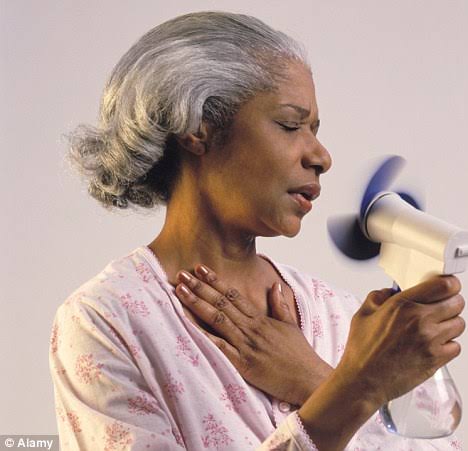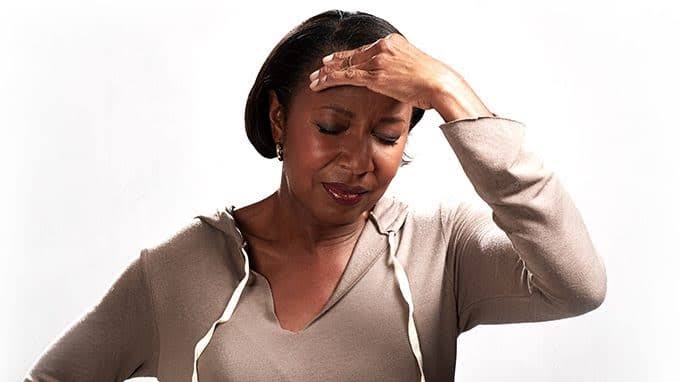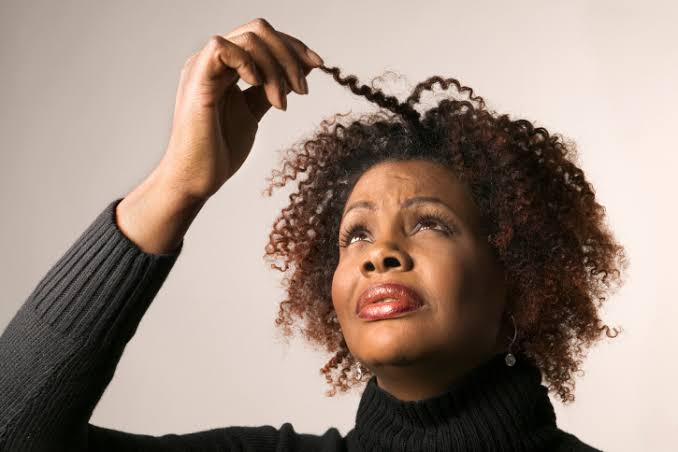Howzit!
Not every woman knows about the stages of menopause, what to expect and how to handle it. If that is you, hold on…
Help is here!
Menopause is a natural biological process that marks the end of a woman’s menstrual cycles. The process occurs in stages and may take several years to complete.

Here are the stages of menopause:
- Perimenopause: This is the first stage of menopause, and it can start in a woman’s 40s or even earlier and can last for several years . During this phase, the ovaries start to produce less estrogen, which can cause changes in the menstrual cycle. Periods may become irregular, lighter or heavier, and one may experience symptoms such as hot flashes, night sweats, vaginal dryness, and mood changes.
- Menopause: Menopause is said to be attained, when a woman has gone 12 consecutive months without a menstrual period. This typically occurs in the early 50s, but it may, as well happen earlier. The average age of menopause in Nigerian women is 49 years . At this phase, the ovaries stop releasing eggs, and estrogen levels significantly decline.
- Postmenopause: This is the stage after menopause, when the symptoms of perimenopause and menopause have subsided.
So, broadly these are the stages of menopause. However, it’s important to know that every woman’s experience of menopause is different, and the length and severity of each stage can vary. Some women may experience menopause symptoms for only a few months, while others may experience them for several years.
What are the symptoms of low estrogen?
Menopause, as spoken of earlier is associated with low estrogen which is responsible for the variety of symptoms experienced. Although , these symptoms may vary depending on the individual and the severity of the hormone deficiency. Some common symptoms of low estrogen are as follows :
- Irregular or absent periods
- Hot flashes
- Night sweats
- Vaginal dryness
- Painful intercourse
- Decreased sex drive
- Mood changes, including depression and anxiety
- Fatigue
- Memory problems and difficulty concentrating
- Dry skin
- Hair loss or thinning
- Changes in weight or body shape
- Joint pain
- Urinary tract infections
- Osteoporosis (bone loss)

Can menopause stop and start again?
Now this is a good question. Once menopause is reached, it is considered a permanent change, and menstrual periods do not resume. However, there are some instances where menopause can “appear” to stop or reverse. For example, if a woman experiences menopausal symptoms and has not had a period for several months or years, but then starts to have regular menstrual periods again, it could be a sign of a hormonal imbalance or a medical condition, such as polycystic ovary syndrome (PCOS).
In other cases, women may undergo a temporary pause in their menopausal symptoms due to hormonal therapy or other medical treatments. However, once these treatments are discontinued, menopausal symptoms usually return. Hence if menopause appears to stop and start again, it most certainly isn’t menopause but an underlying condition.
Does menopause make one lose weight?
Menopause can contribute to weight gain due to hormonal changes and a decrease in metabolism. During menopause, the levels of estrogen and progesterone decrease, which can result in a slower metabolism and an increase in body fat.
This can make it more difficult to lose weight, and some women may experience weight gain. Additionally, changes in hormone levels can lead to an increase in appetite, particularly for foods that are high in sugar and carbohydrates, which can also contribute to weight gain.
However, it is possible for women to lose weight during menopause through healthy lifestyle habits such as regular exercise and a balanced, nutrient-dense diet. Engaging in strength training can also help build muscle, which can increase metabolism and aid in weight loss. Additionally, getting enough sleep and managing stress can help regulate hormones and support healthy weight management.
It is important to note that weight loss during menopause may be more difficult than at other stages of life. So, you may want to consult with a doctor before making any significant changes to diet or exercise habits.

Does one’s body go back to normal after menopause?
As said earlier, while some changes that occur during menopause may be permanent, such as the end of menstrual cycles, many of the symptoms associated with menopause can be managed through various treatments and lifestyle changes. For instance, hot flashes and night sweats can be managed through hormone replacement therapy or other medications. While bone loss on the other hand, can be prevented or slowed through a healthy diet and exercise.
Additionally, many women find that their bodies do gradually adapt to the new hormonal levels and that their symptoms lessen over time.
However, as it has been emphasized from the beginning, it is important to note that menopause is a unique experience for every woman. Hence, there is specific answer to how the body will respond to the changes that occur during this phase.
Is menopause associated with fatigue?
Yes! menopause can cause fatigue and tiredness in many women. Due to decreasing levels of estrogen and progesterone in this phase, other hormones, such as adrenal and thyroid hormones are affected. These hormones regulate cellular energy in the body and if they are not balanced, fatigue may ensue.
Additionally, other symptoms of menopause, such as hot flashes, night sweats, and disrupted sleep patterns, can also contribute to fatigue. Menopause is commonly a time of emotional and psychological changes. These can lead to increased stress, anxiety, and mood changes, all of which can contribute to feelings of fatigue.
However, If you are experiencing persistent or severe fatigue during menopause, you may talk to your doctor to rule out other possible causes and explore treatment options.
What are the signs that menopause may be coming to an end?
- Irregular periods: As women approach the end of menopause, their periods may become more irregular, lighter, or even skip periods altogether. Eventually, periods will stop permanently.
- Decreased hot flashes and night sweats: Hot flashes and night sweats typically decrease in frequency and intensity as women move through the later stages of menopause.
- Improved mood and energy levels: Many women report feeling better and having more energy as they come to the end of menopause.
- Changes in vaginal dryness and discomfort: Vaginal dryness and discomfort may improve as estrogen levels stabilize.
Finally, we are at the end! Thanks to you for coming this far with me. At this juncture, I would like to add that menopause is a phase just like any other in life. Hence, it will pass. I only do hope that this article helps you to be ready for when and how it happens.
Stay awesome,
Till next time!
Read also : Malnutrition in pregnancy ;fatal complications.









